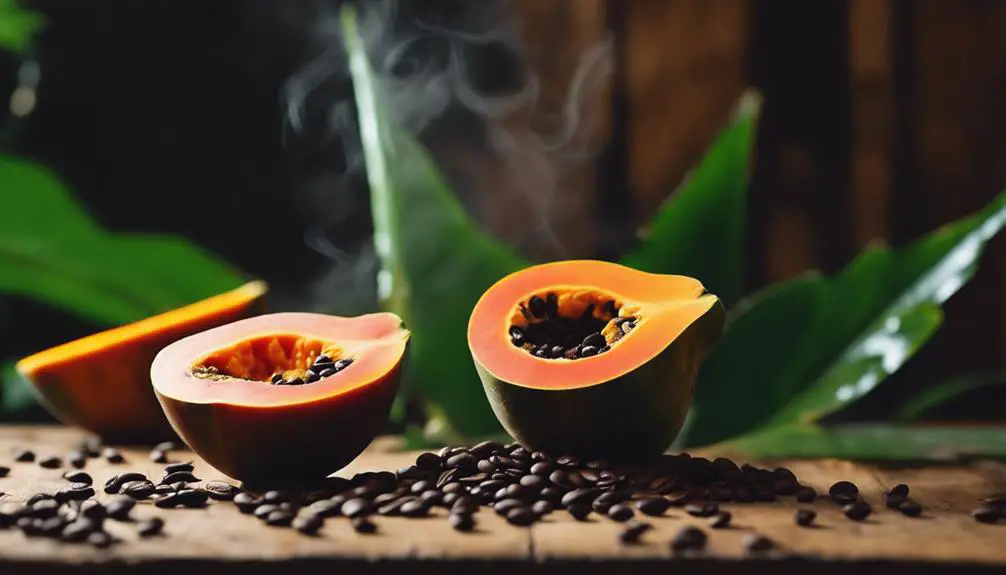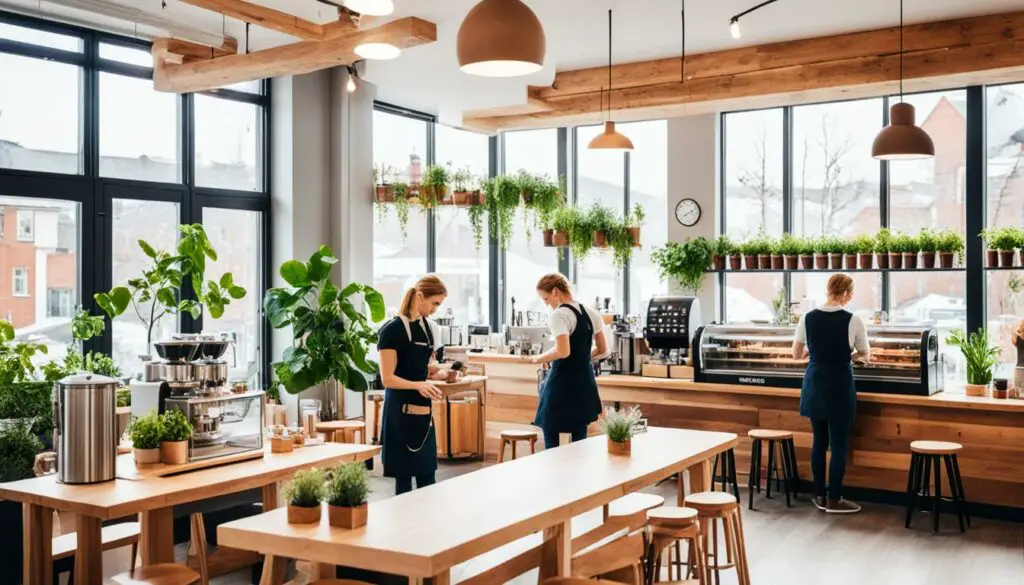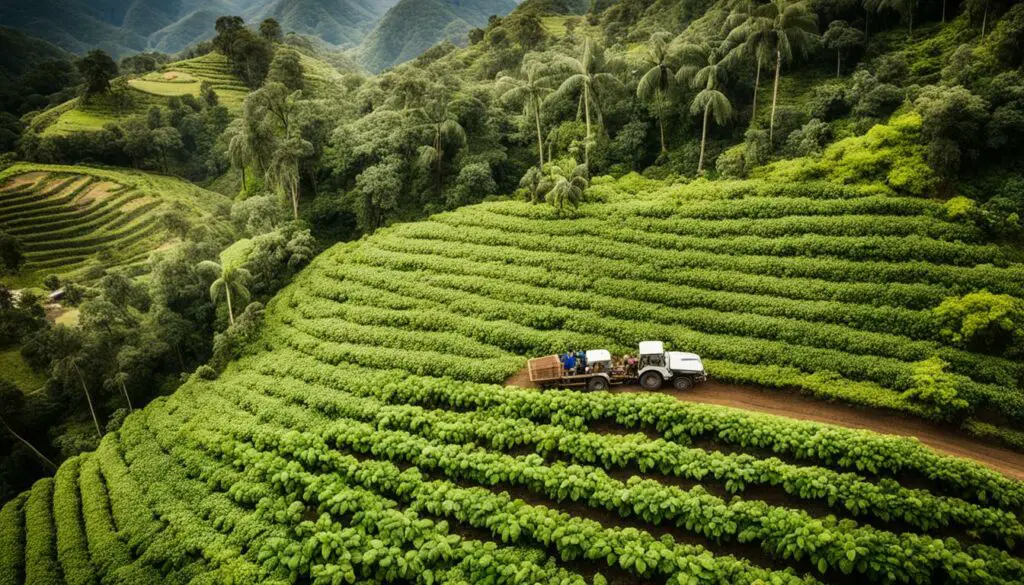Every coffee lover looks forward to the time of day when you take your first coffee break. You reach for your trusty, favorite coffee cup and pour yourself a strong cup of that sweet, sweet nectar. The rich aroma alone is enough to lift your mood. It’s a familiar feeling for coffee lovers like us. But have you ever asked yourself, why is coffee called Java, or Joe, for that matter? Well, let’s find out.
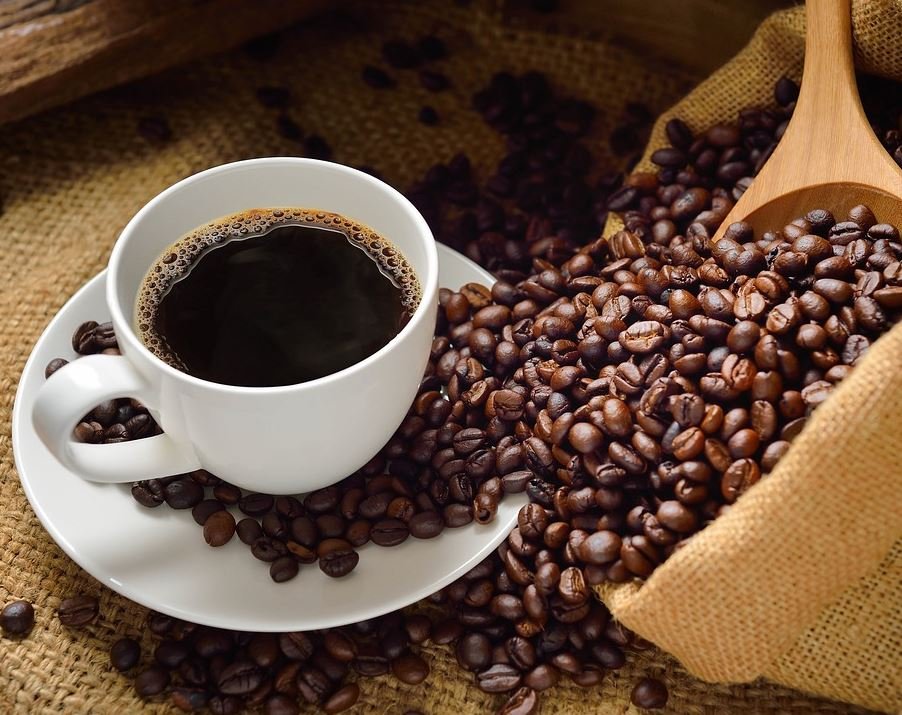
But how familiar are you with your colloquial coffee terms? Most of us use descriptive coffee terms specific to the style of brew, such as coffee latte, cappuccino, americano, black coffee, espresso, filter coffee, etc. But have you ever used the word “java,” or a cup of Joe, to refer to your brew? You may never have heard of them before.
Why is coffee sometimes called java? Why is a cup of coffee called a cup of joe? Let’s find out.
Why is coffee called Java?
You may have only ever heard the term “Java” used in reference to the Javascript software used on computers, but that’s certainly not where the colloquial term for coffee has derived from.
Java neither refers to a specific type of coffee bean nor a coffee brewing method. The term actually comes from the history of coffee beans. Check out more about it in the history of coffee beans here. The term Java dates all the way back to the 1600s in Indonesia.
Located between the famous island of Bali and the lesser-known island of Sumatra, lies the island of Java. During the 1600s, the Dutch had colonized many areas across the globe, including significant territories in Southeast Asia, and had a monopoly on trade in this region. The Dutch East India Company brought Arabica coffee beans to the Indonesian islands, including Java Island, where they began growing the coffee plant and exporting the coffee beans to other cities and regions.
Although we don’t know exactly how the term was first used, we can assume that it was used during trading negotiations when the coffee beans from Java Island were introduced to other areas, and the word “java” became associated with the coffee beans. It became an increasingly popular export for the Dutch colonists, who began upgrading the infrastructure on Java Island to ease its transportation. They exploited the land and the Java Islanders for commercial and agricultural production through forced labor. Java Island soon became a major producer of coffee.
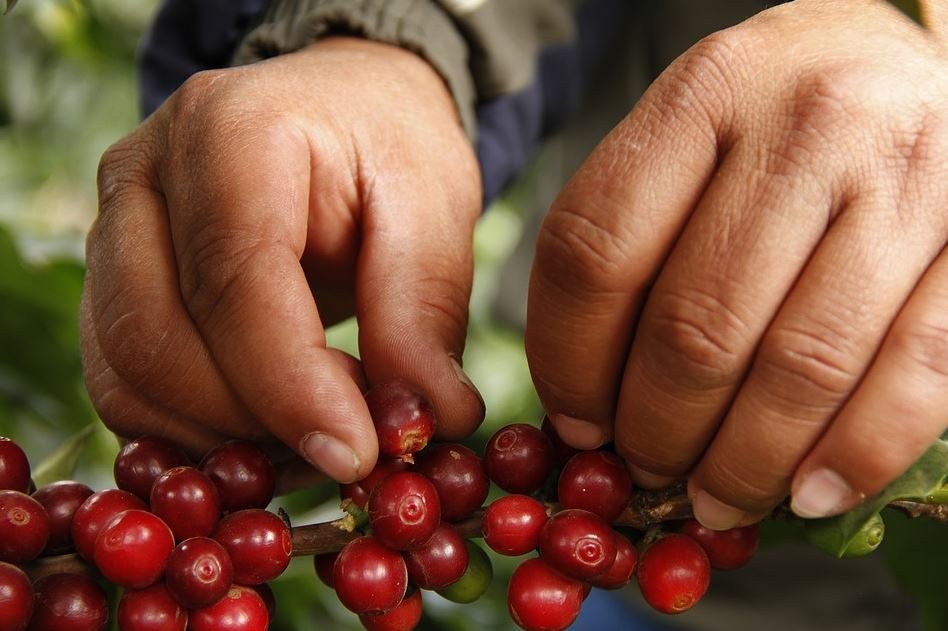
Today, Indonesia remains the world’s fourth-largest coffee producer just after Brazil, Vietnam, and Colombia. Java Island is home to an elite class of people with working-class inhabitants practicing Java farming.
Why is coffee called ‘Cup of Joe’
There are three theories about the origin of the term ‘cup of joe’. Let’s take a quick look at these theories and you can decide for yourself which one holds the most weight.
Theory 1: The Navy Secretary
According to this theory, the 1913 Secretary of the Navy, Josephus Daniels, issued General Order 99 which prohibited alcohol consumption onboard naval ships. This meant the strongest drink you could find onboard was a strong black coffee. This didn’t go over well with the Navy sailors, who started referring to coffee as a “cup of Joe” to spite him. This sounds convincing, but many historians doubt the legitimacy of this theory. What do you think?
Theory 2: Combining words to make ‘Joe’
Some English language researchers believe that the term came about from a combination of other colloquial synonyms for coffee. Starting off with a combination of ‘Java’ and ‘Mocha’, the word ‘Jamoke’ was born which also referred to coffee. Some linguistic professionals say that the term ‘Cup of Joe’ was actually a shortened version of the phrase ‘Cup of Jamoke’. It sounds plausible…
Theory 3: The common man
The second theory focuses on the name “Joe”. Joe is often used as a slang term for “the common man”. ‘Joe Blogs’ or you’re ‘Average Joe’. There are plenty of ways the name Joe has been incorporated into the common tongue as a way of referring to an ordinary guy. “Joe” was first used to refer to the common man around 1846, when the popularity of coffee had already spread across the globe and was being enjoyed by all. Hence, a “cup of Joe” is the “common man’s drink”. This seems to be the most obvious origin of the phrase ‘cup of joe’.

Check out some other colloquial terms for coffee below.
- Dirt
- Mud
- Brew
- Cuppa
- Daily grind
- Lifeblood
- Rocket fuel
- café noir
- café
- Café au lait
- latte
- cappuccino
- flat white
- americano
- espresso
- pour-over
- perk
- caffeine
- jamoke
- jamocha
- mocha
- decaf
What words do you use to refer to your coffee? Let us know in the comments below. Or.
Grab Some of Your Favorite Joe
| Image | Title | Price | Prime | Buy |
|---|---|---|---|---|
 | Bean Box World Coffee Tour | Specialty Coffee Gift Basket | Gourmet Coffee | Coffee Gifts for Women and Men | Birthday Gifts for Her | Care Package | Freshly Ground Coffee | 16 Piece Variety Set | PrimeEligible | Buy Now | |
 | InfuSio Gourmet Ground Coffee, (64oz) Variety Pack, Eight 8oz Bags (Pack of 8) - 4lbs Total - (French Roast/Colombian/City Roast/Costa Rica) With Flavored Blends (Pecan/Chicory/Vanilla/Creme Brulee) | PrimeEligible | Buy Now | |
 | Bean Box Gourmet Coffee Sampler | Specialty Coffee Gift Basket | Coffee Gift Set | Coffee Gifts for Women and Men | Birthday Gifts for Her | Care Package | Whole Bean Coffee | 4 Piece Variety Set | PrimeEligible | Buy Now |
Product prices and availability are accurate as of the date/time indicated and are subject to change. Any price and availability information displayed on [relevant Amazon Site(s), as applicable] at the time of purchase will apply to the purchase of this product.
Prices pulled from the Amazon Product Advertising API on:






